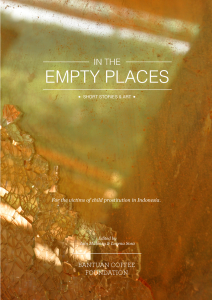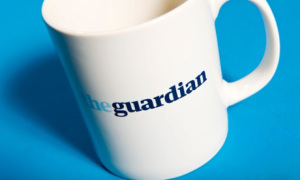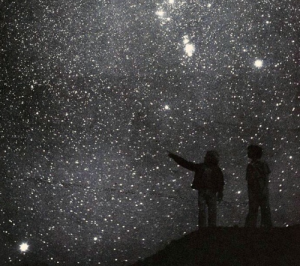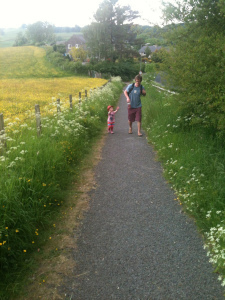Simon Sylvester's Blog, page 14
December 12, 2014
In The Empty Places
A very worthy work was published last week, and I wanted to take a moment to shout about it. In The Empty Places is an anthology of art and short stories published by the Bantuan Coffee Foundation, an amazing organisation that provides shelter and education for victims of child prostitution and trafficking in Indonesia. It’s a fantastic cause delivering real, practical solutions on the ground, and I’m honoured that they considered some of my work for the anthology. The editors accepted a short story about the Chinese cocklers that drowned in Morecambe Bay in 2001. I lived in Lancaster at the time, only a few miles away, and I never managed to shake off a sense of uncaring tragedy; relentless winter skies, the media circus, the restaurant owners protesting their innocence.
My piece is in the extraordinary company of writers including Toni Davidson, Rodge Glass, Tendai Huchu, Kirsty Logan, Anneliese Mackintosh, Iain Maloney, Suhayl Saadi and Chiew-Siah Tei. Some of these stories are appearing in translation for the first time. The book also includes artwork by Tomi Muller, Mayra Martins Redin and my wife, Monica Metsers.
In The Empty Places is helping to provide real solutions and real escapes for children who have been forced into prostitution. If you’d like to help too, then follow this link for a copy of the book; there are far worse ways to spend your money this Christmas.

December 7, 2014
The infinite wilderness of America
Gruff Rhys played Kendal Library last night, and it was the best gig I’ve been to for a very long time: a madcap historical tour of 1790s America told in equal parts music, PowerPoint presentation, audience participation and something like stand-up. Gruff’s new album is a eulogy for John Evans, a penniless 20-year-old farm labourer who set off for the New World in search of legendary lost tribes of white Welsh Indians. Along the way, he faced the perils of disease, incarceration, war, assassination, hunting parties, alligators, and living in London. After every few slides in the presentation came a song, played on a combination of guitar, harmonica, some box full of electronic bleeps, a wired-up metronome and a turntable, as well as Gruff’s astonishing voice, crooning and whooping and soothing and floating through it all: pop, dub, techno, folk.
John Evans’ irresistible story was told with respect and gentle humour. One of the songs took its lyrics from his letters home; another focused on the unlikely friendship between Evans and a renegade Scottish general called McKay, finishing with a gorgeous refrain: “If we were words, we would rhyme.”
Of course, with Gruff being a Super Furry Animal, every part of the show walked a tightrope of the weird; unicorns, email, breadsticks and Easy Rider all played a part. It was a truly extraordinary gig, and I’m still reeling that we were amongst such a tiny audience – only 100 people – and in such a great venue as Kendal Library. Get It Loud In Libraries is a brilliant initiative, and I love how they bring new wonders to already vital places. I hope they’ll be doing more concerts soon. (I quietly suggested James Yorkston…)
We hung around after the show to ask Gruff to sign a poster. I’ve worked with some relatively famous people in my various careers, and never been starstruck, but last night I found myself completely tongue tied. I’ve been crazy about Super Furry Animals since I first heard Fuzzy Logic – I must have been 16 – and I was suddenly overawed by how much I love Gruff’s work, from SFA through Separado and his solo albums. Weirdly, he and I share a birthday (along with Hunter S. Thompson and Nelson Mandela). Mon and I garbled at him for a while, got our signature, and fled for the pub.
I think my residing memory will be the library sign on the wall above the stage. As Gruff sung his way so beautifully through the life and times of John Evans, the clipped font above his head announced:
Local Studies
Mountaineering
Music
Arts & Crafts
Travel
Computers
Maps
Perfect.

November 29, 2014
What go on
Just a quick note to say that I’ve added an events page to the top of the blog. Hoping to keep this ticking over – I’ve really enjoyed spending so much time this year with Flashtag, Bad Language, Verbalise, Dreamfired and book groups. Good peoples, one and all.

Crossroads
I haven’t blogged for ages – sorry. The reasons are almost too mundane to mention, but the short version is that my workspace has been out of action for two months. This has cut my video editing and writing time down considerably, and in what time I’ve had, the video jobs have to take priority. I wrapped up my second promo for Born Survivor, and I’m a whisker away from finishing my long-running hay meadows project. I’ll write some more about that when it’s finally complete; unlike any other job I’ve taken on, the meadows film has changed the way I think about the world. This is tied up in Scottish independence, vegetarianism/veganism, and plastic. To be discussed.
I’m writing this post as something of a confession. After months away, the last fortnight has actually given me three solid days to write. In that time I’ve added 11,000 words, and surged from despondency to exhilaration. I’ve now levelled out somewhere in between. (I’m a lot more neurotic than I probably appear.) This is a confession because, in these last few days in particular, my imagination and awareness have been completely invested in The Hollows. I haven’t had much space for anything else. I’ve been ratty and irritable – not because I’m actually feeling ratty, but because this story is a sore tooth – constantly nagging, constantly distracting, always there – and I’m struggling to live in two realities at once. I’ve now written about 26,000 words, which I estimate is about a third of the finished manuscript, and I find myself in the extraordinary position of not knowing where to go from here.
That sounds bad, but it isn’t. I very much believe in giving stories space to breathe, in letting them evolve, and this one has evolved radically around the busiest year of my entire life. I’m positive about all of the routes I could take, though each of them entails some changes. I’m now brewing on which to take. Bluntly speaking, my choices could be defined by genre, but it’s not that simple. It’s about my sense of self-worth, and the value I take from the act of writing. This story feels entirely right to me, but I don’t know what it is. It’s like reading a map in another alphabet: the world is fleetingly familiar, but I haven’t yet worked out where I am. At a crossroads, perhaps. Each route has pitfalls and detours and summits to climb. (My friend James Hannah says to turn left.)
I’m spending hours at a time with my notebook. I’m listening to Rachel’s and Balmorhea. I’m floating in a sea of puzzle pieces. If I can pin down one or two, I’ll build the rest from there, but they are quick as fish.
Writing is easy, and writing is hard.

November 3, 2014
Notebook
On the rare occasions I’ve been asked for writing advice, one of the things I always suggest is to carry a notebook and a pen. I’ve lost count of the thoughts, ideas, plots, characters and dialogue I’ve let slip through the gaps in my atrocious memory. It’s heartbreaking. I took to carrying a pocket notebook years ago. Sometimes I fill one in a month, and sometimes in six months, until it disintegrates to dust and fibres and I need to tape the spine. I keep them all on a shelf above my desk. Once, while backpacking in Australia, I spilled a hipflask of Maker’s Mark all over my notebook, and the whiskey erased the ink. I lost my bourbon, and I lost weeks of passing thoughts. As my friend Ali said, it was the very definition of two wrongs not making a right.
Notebooks aren’t just for the utility of capturing ideas. It’s important to remember how to write the hard way. I’m a thug of a typist, but I’m pretty fast, and I spend a huge amount of time glued to my computer, whether that’s writing or editing. My default setting is electric, and when I have an idea, I tend to go to the computer first.
This is all relevant because I’m finally dipping my toes back into The Hollows. I started on Christmas Eve 2013, wrote sporadically through the new year, and hit 25,000 words around June. I haven’t worked on it at all since then, but last week I finally had the space to look at it again. On reading it through, I was a little unhappy with some of my work. Parts of it read well, but simply weren’t right for the story any more. No matter how much I shuffled chapters or copied and pasted paragraphs to try and make it fit, the story wouldn’t gel. Instead, I put on some music and sat back with a fountain pen and an old office diary I nabbed years ago to use as a notebook.
The diary was a red hardback day-to-a-page thing, brand new and unused from 2006, a ribbon bookmark folded flat between the crisp blank pages. It was perfect. I started scribbling down my worries and woes. I made lists of characters I liked and characters I didn’t need. I wrote down what worked, and what never could. I drew lots of dots and stars and arrows connecting things that wouldn’t make sense to anyone else. I wrote questions and answers. I wrote until my hand hurt and I had a dent in my forefinger. A few hours later, the mist was beginning to clear, and some new ideas were beginning to show themselves.
That night, I talked it through with Mon. She’s so good at giving me space to shape my ideas. Often the act of explaining a story to Mon explains the story to me, too. Vocalising something gives it clarity. After chatting it through, I spent another hour or two jotting down new ideas, new people, new places to explore.
This is all the planning I do when I’m writing. Rough notes and loose association. It works better with ink than on a screen. It makes the process tangible. I couldn’t do what Ali did with his last novel, and write the whole thing longhand – that wouldn’t work for me – but I’d forgotten how healthy it is to make a mark, to scribe into the fibres of the page. The act of writing with a pen has conjured new ideas, too – things that couldn’t have occurred in pixels.
The hardest part is making the decision. I went back to the manuscript, and cut 11,000 words. It hurt, but it was important. There were good scenes in there – good chapters – but they’d sent me off course, and they had to go. Now they’re gone. My draft is 11,000 words lighter, but I’m more confident in what is left. The shape of the story has changed. The characters are starting to stir, beginning to show themselves.
It’s insane to think I’ve achieved so little since starting it almost a year ago. I feel like I should have a finished draft by now. I know, looking back, that we’ve been extraordinarily busy this year, and that I’ve completed a multitude of other things, but The Hollows is back in my life and shouting louder than ever. I’ve spent some time on the wrong path, but now I think I’ve found my way. A pen, a compass.


October 31, 2014
Little Dog Turpie
My wife showed this to me, not long after we met. It’s one of the ways I knew she was the girl for me. An authentically gruesome spin on the old folk tale of The Hobyahs, here’s the tale of Little Dog Turpie.


October 16, 2014
A tangled ball of things
I’m absolutely delighted to say that The Visitors has taken first place in the Not The Booker prize 2014. Run by The Guardian, the competition is presented as a slightly tongue-in-cheek parallel with the Man Booker Prize. The actual prize, for example, is a mug:
It’s taken an astoundingly long time to get this far – the first nominations were something like three months ago – and the way it accelerated into the final week was unnerving. The prize is awarded through a combination of public votes and a judging panel. After an agonising week of voting, The Visitors was neck and neck with Tony Black and his novel The Last Tiger (which sounds amazing). With the vote tied, we were awarded a point apiece, which left the three judges to reach a decision during a live video discussion about the shortlist.
I left work early and cycled home to watch the online stream of the discussion. By the time chairman Sam Jordison asked the judges for their final votes, I found myself pacing the room, wanting to know, not wanting to know. The anticipation was driving my heart out through my chest.
So there we have it. It’s still sinking in, even four days later. After the decision was announced, Mon came home and took me out for lunch. That was the right thing to do. There’s no way I would have managed any work that afternoon.
It’s a truly humbling thing to happen, and I feel both proud and grateful that my book has had so much support. Please consider this a massive thank you to anyone and everyone who has bought, read, enjoyed, voted or commented on The Visitors. You’re amazing!
Releasing a book into the wild is a terrifying thing to do. I spent so long wrapped up in Bancree by myself that it still feels raw to share the island with other people. Knowing that folk might like my story conjures a huge, tangled ball of things: relief and disbelief, elation, a lurch of adrenaline.
I’m absolutely thrilled, but I’m also looking ahead. I have more books to write. Not The Booker coming to an end coincides with my backlog of film jobs beginning to ease. In a week or so, I think I can get back to writing regularly. It’s been months since I had concerted time to work, and I can barely remember big chunks of The Hollows. My first few sessions will be stripping things away, I’m sure, and clearing the ground to start again. I can’t wait, and I’m glad to be returning on the right side of Not The Booker.
Thank you, people. You are a galaxy of stars.


Team Sneck
I’m delighted to share this article in the Inverness Courier about Not The Booker. It’s very weird to have read the Courier twice a week throughout my teenage years, and now to read this.
I took this picture in 2005, from the back garden of our house in Inverness, some time around midsummer, slightly after midnight.


#TeamSneck
Delighted to share this article in the Inverness Courier about Not The Booker. Very weird to have read the Courier twice a week when I was a teenager, and now to read this…


October 12, 2014
Self-publishing
Natalie Bowers, editor of the excellent picture/fiction mash up site 1000 Words, has written a wonderful review of Marrow. It’s always fantastic to have a reader completely get my stories, so I’m really pleased to share her thoughts on the collection.
After reading the book, Natalie asked me to write a little about why I decided to self-publish Marrow. If you’re interested in traditional vs. self-publishing, then lay on, Macduffs, and discover why I chose to take that path.
This is a picture of my daughter and I arguing on a path.


Simon Sylvester's Blog
- Simon Sylvester's profile
- 39 followers







